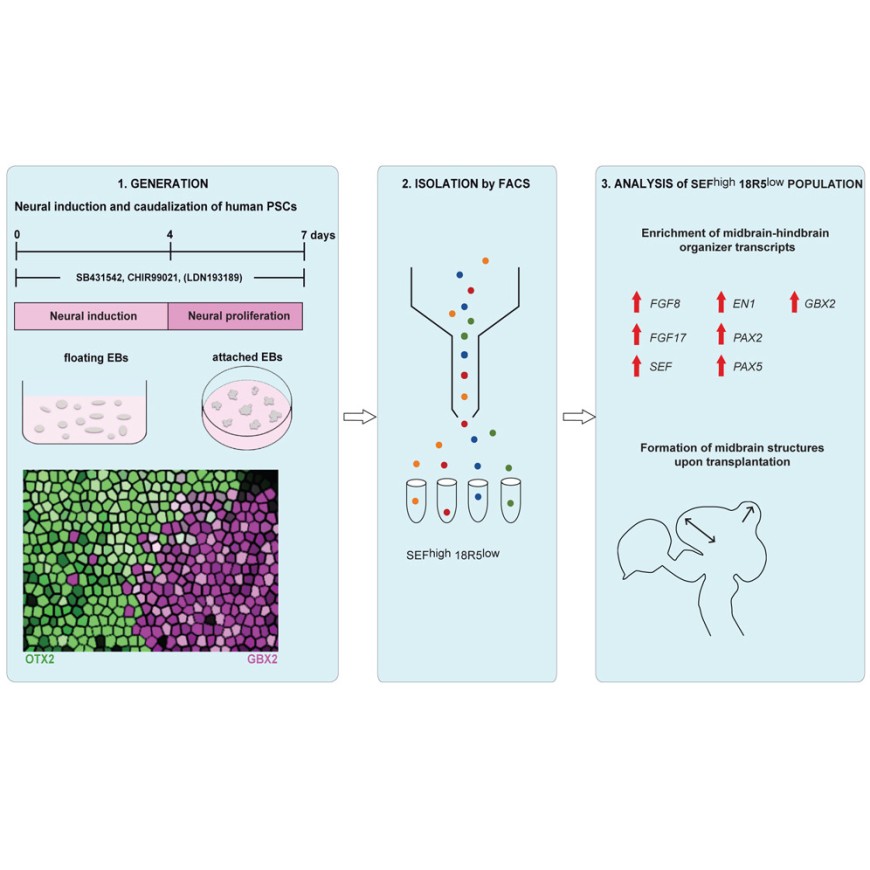4th SynBio World Cafe 2023
“Together We Grow”
2023/11/14
Professor Ulrike Nuber's research group at the Department of Biology has published an article on human organiser cells entitled “Enrichment of FGF8-expressing cells from neurally induced human pluripotent stem cell cultures” in Stem Cell Reports.

Organisers are groups of cells that control the development of animal tissues and organs by inducing neighbouring cells to adopt a specific fate and form organised structures. This key principle of animal development was first discovered at the beginning of the 20th century in the freshwater polyp Hydra and in newt embryos. Organiser effects on neighbouring cells are based on the release of certain proteins or lipids that act as so-called morphogens, i.e. shape-forming agents.
Although organisers have been described in vertebrates, very little to nothing is known about these development-regulating cell groups in humans. Ulrike Nuber's team has now been able to show that a cell population can be developed and isolated from human pluripotent stem cell cultures that produces FGF8 morphogens and has midbrain organising effects.
This work, with Nils Offen from TU Darmstadt as first author, thus lays important foundations for studies on normal and impaired development of the human midbrain. In addition, these results serve as a stimulus to use morphogen-secreting cells for the development of spatially improved tissue models derived from human pluripotent stem cells.
